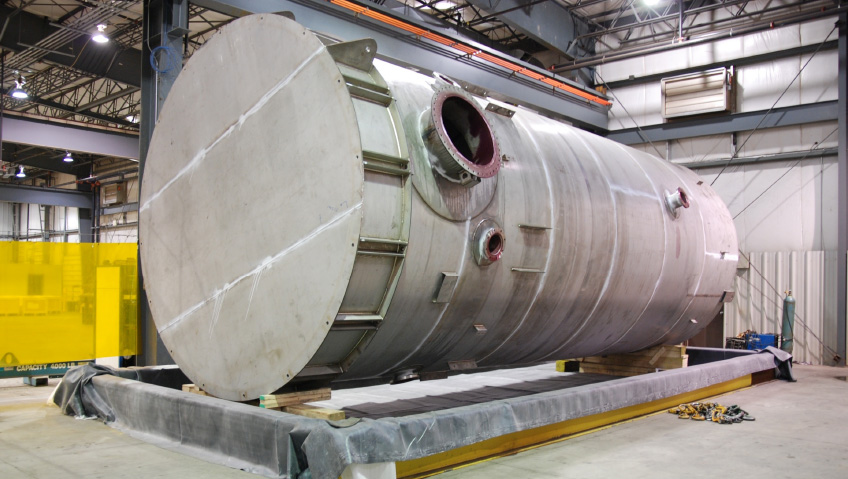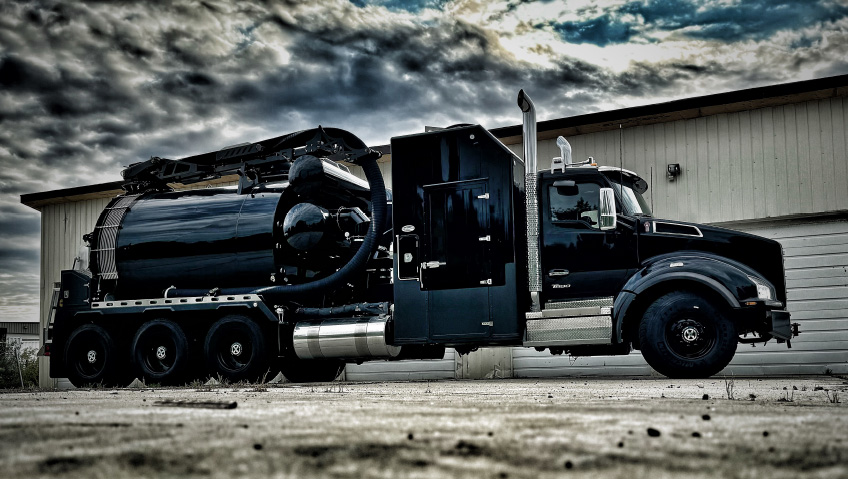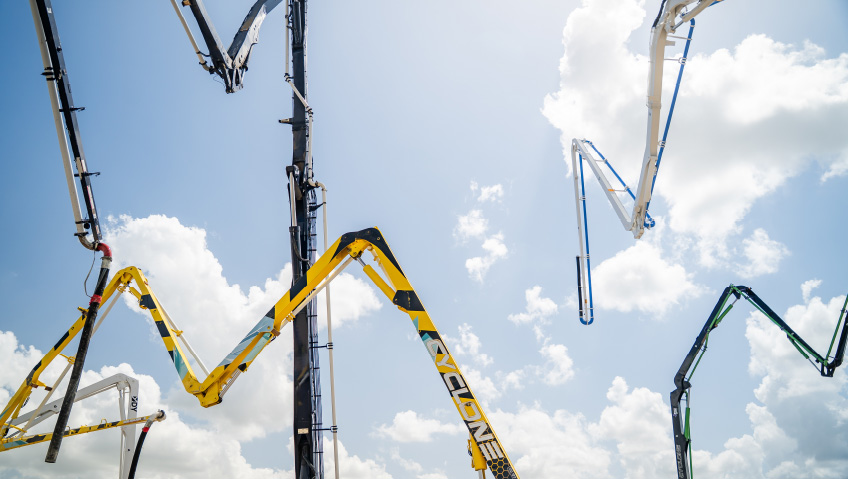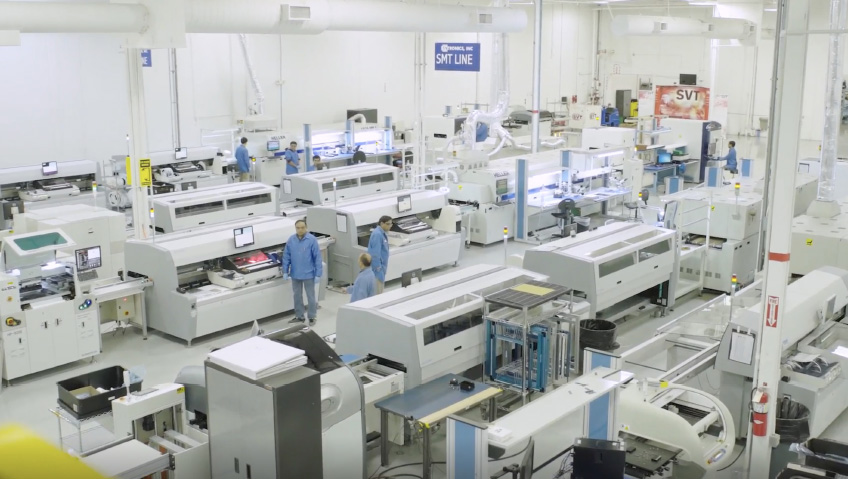Where would we be without welding? What would get built? What tools would we have? How many industries would not even be around without it? Consider the impacts of welding on mining alone. “A lot of our technologies come from the ground. Carbon fibres, nano fibres, your cell phone, your gold, your nickel, your silver. The housing industry relies on copper,” says Brett Murray, President and CEO of JEBCO Industries Inc. in Barrie, Ontario. “You know, everything that we do has iron ore, and you extract oil for bitumen and turn it into plastics and textiles and rayon for Lululemon.”
Few people appreciate this in quite the same way that Murray does. His business has grown to become a significant manufacturing partner for the mining industry and oil fields in Canada and beyond.
And it all started with an unfortunate accident back in 1980.
“My dad fell off a ladder, smashed his heels, and was in a wheelchair for a year and a bit,” says Murray, who had trained as a sheet metal worker. His dad was a coppersmith by trade. “Once he had the accident, our life, everything changed.”
As part of this rollercoaster, Murray joined the family business, which specialized in welding for auto industry players like American Motors and Chrysler. It was based on the family farm near Thornton, Ontario, where his parents still live. He and his dad decided to reinvent the company, and Murray went on to become CEO as they grew and pivoted, now leading in industrial parts and heavy equipment. He’s proud that it’s still a family business.
Part of this new venture included projects with a company called Ramsey Engineering, which makes high-precision weighing equipment for industrial automation. “They would build belt scales that would weigh material, like iron ore going into the mill at the mine or sawdust, aggregate, or cement,” Murray explains. So JEBCO began working on projects for bridges, underground conveyances, cages, hoppers, and bins.
Things can change on a dime in business when a main client is sold. Ramsey was bought by Thermo Fisher Scientific, an American biotechnology company and global medical supplier—which no longer had need of JEBCO’s services. This was a crucial moment and an important change for the company, and the team began to focus more of its resources on third-party or OEM manufacturing.
“We went through the ’90s being a custom manufacturer. We did not get into the construction industry at all,” Murray says of the company’s decision to pursue opportunities in water treatment systems and then pulp and paper. “We stuck with mining or heavy industry, and that took us into pulp and paper because they’re all related, with common threads.”
Processing equipment for the oil sands was a particular growth area, and the company won its bid for weld overlay work for projects with Canadian Natural, one of the largest independent crude oil and natural gas producers. “Basically, it was a hydro cyclone with a feed launderer for the processing of the bitumen product,” Murray explains. “This particular project had a vessel that was lined with what we call a chrome carbide weld overlay. But they hadn’t actually executed it yet.”
The trouble was that the company that JEBCO contracted the work to was unable to provide that service. “We were in a very tricky position of needing to deliver on this, so we developed the process ourselves by being entrepreneurial and just finding a way while being under pressure.”
The feat made JEBCO one of the very first companies in Canada to have a weld overlay over a pressure boundary weld without needing to test twice. Named Ultraclad, this innovation was the world’s first and only fully robotic cladding technology, operating in the continuous 1F welding position, capable of cladding any shape or size of pipe.
Impressed, Canadian Natural came back to JEBCO again a year later, looking for work on the pipe and fittings in Alberta’s massive oil sands. “They awarded us a $10 million contract to line their pipe and fittings. We do this chrome carbide overlay on the inside of an elbow in the 1F position, which, to this day, is not being repeated. And we became a major supplier.”
Company expansion followed, and JEBCO bought a large complex in Barrie, Ontario in 2000, employing about 140 employees, including a full engineering staff. This marked a bright streak in the company’s history until the pandemic struck in 2020 when, like many businesses, JEBCO was upended.
“They announced the official state of emergency and then the six-foot distancing,” Murray recalls. “In the oil industry, they have large coaches to pick you up, holding anywhere from 45 to 65 people. There are thousands of people who they move by coaches, whether it be to the ExxonMobil or the Syncrude site, or the Canadian Natural sites—nobody drives to work.”
One can picture trying to get people six feet apart on a coach; a coach that can hold 60 people now only has 10 people. These logistical challenges coupled with reduced demand meant a slowdown for the whole sector. JEBCO came to a complete halt and had to rethink its business outlook. Part of the redirect included a return to its mining roots and applying its cladding technology.
On the upside, the past five years have seen a pattern of regrowth. “It’s a different landscape. We shifted from 80 percent mining and 20 percent oil sands supply to 80 percent oil sands and then back again to mining and water treatment,” Murray tells us.
While this was a painful shift, JEBCO is seeing the benefits of its agility. More emerging technologies are looking for minerals that the company helps to extract, like silver, gold, and copper. This pivot has also brought JEBCO back to its roots again. The company was reengaged by Ramsey to manufacture the belt scales and tramp metal detection for metal detectors.
Now Murray has signed a licensing agreement with an Australian company to provide clean air solutions for mining and construction support. This is a major win for the company and industry workers in the field, he says of the technology.
“They are basically gigantic dust collectors used to prevent silicosis issues that are prevalent everywhere as soon as you start digging in the ground, whether tunnelling, underground mining, or demolition work. We can collect that dust from the source and remove it from the workers.” By partnering with the founder of the product in Australia and Britain, JEBCO is bringing that technology to the U.S. and Canada and will be its only manufacturer.
Murray sees this as a critical turning point where the industries the company supports are making environmental impact a priority. It comes at a time when businesses with green initiatives have better brand recognition, investor support, and long-term sustainability. Take a ship loading cement: the loader moving the cement onto the ship needs a belt scale on it. The belt scale weighs exactly how many tons are going aboard. JEBCO helps make that happen. Then the ship with that belt scale also needs dust control while being loaded. That’s where JEBCO manages dust control to protect the environment and workers.
“So, whether it’s cement, iron ore, or other products, we feel that we’re setting ourselves up to be complementary to the environment and complementary to our industry,” says Murray. “We’re making good, honest, billable support through our belt scale, so that our clients understand that what they’re paying for or what they’re selling is accurate, and we’re controlling environmental dust issues.”
Looking ahead, JEBCO will be moving to a larger facility in Barrie next year, primed and prepared for what is to come. “We have a great general manager and a great financial manager handling our day-to-day operations as we scale for the future,” emphasizes Murray. “We’re pumped to be going through this next phase of our journey, and we have a great team.”






